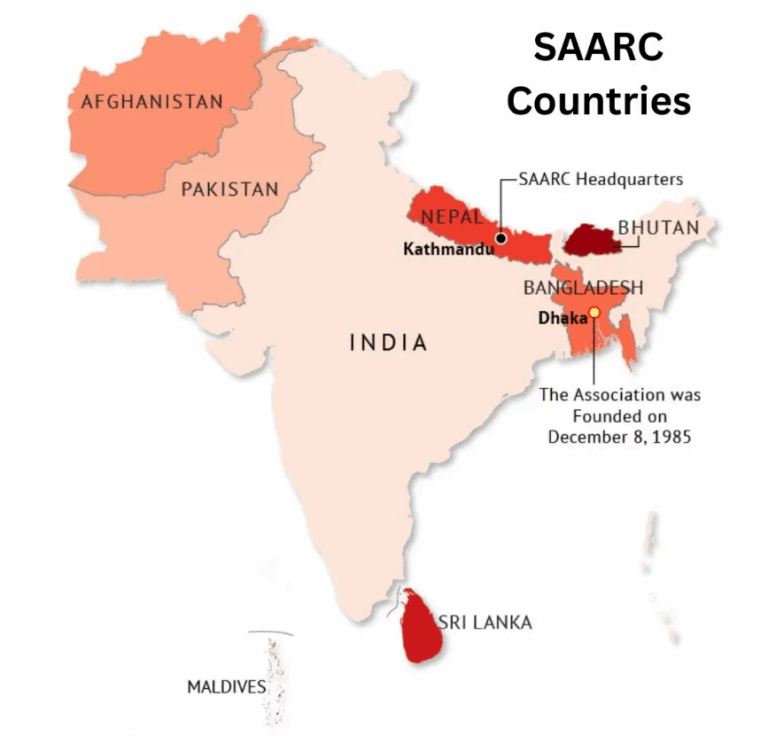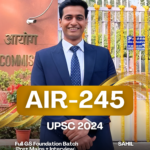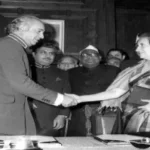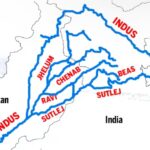The Fragmentation in the Global Fight Against Terror
The Pahalgam terror attack on April 22 has highlighted the division in the global response to terrorism, particularly concerning Pakistan's actions against India.
- The Pahalgam terror attack on April 22 has highlighted the division in the global response to terrorism, particularly concerning Pakistan’s actions against India.
- While international condemnation was widespread, calls for restraint were equally prevalent, underscoring the fragmented nature of the global fight against terror.

International Reactions and Concerns
- U.S. officials, including Secretary of State Marco Rubio and Vice President J.D. Vance, emphasised the need for a peaceful resolution and warned against regional conflict.
- Russian Foreign Minister Sergey Lavrov advocated for political and diplomatic solutions between India and Pakistan.
- The European Union showed reluctance to label the Pahalgam incident as a “terror attack,” reflecting a shift away from zero tolerance towards terrorism.
- Some countries demanded proof of Pakistan’s involvement in terror activities, ignoring past events like the Pulwama and 26/11 attacks.
Unified Anti-Terror Front
- In the aftermath of the Pahalgam attack, global powers issued statements that were, at best, diplomatically cautious and, at worst, morally ambiguous.
- Calls from the United States, the European Union, and Russia for restraint from both sides effectively equated the victim (India) with the perpetrator (Pakistan), diluting the moral clarity necessary for a resolute stand against terrorism.
- This marks a stark departure from the early 2000s, when the global community, galvanised by the 9/11 attacks, stood united in a ‘zero tolerance’ approach to terrorism.
- The erosion of this collective will is partly due to shifting global priorities.
- With ongoing wars in Ukraine, Gaza, and broader West Asia, the appetite for new conflicts, particularly in Asia, is limited.
- In this climate, India’s security concerns are often subordinated to broader fears of regional escalation, especially given Pakistan’s use of its nuclear status as a deterrent against decisive international action.
Return of My Terrorist vs. Your Terrorist
- The global fight against terrorism has reverted to a selective, interest-based approach.
- Western nations focus on right-wing extremism or REMVE (racially and ethnically motivated violent extremism), while the Organisation of Islamic Cooperation (OIC) often turns a blind eye to Islamist terrorism, citing Islamophobia.
- Canada’s refusal to act against anti-India elements operating from its soil, under the guise of free expression, is emblematic of this hypocrisy.
- Similarly, China’s consistent use of its veto power in the United Nations Security Council (UNSC) to shield Pakistan-backed terrorists underlines how geopolitics trumps principle.
- Africa, too, is facing a surge in terrorist activity, especially in the Sahel region. However, the international response remains muted, with terrorism in Africa and Asia increasingly regarded as someone else’s problem.
Religious Implications
- The Pahalgam attack itself, in which Hindus were allegedly targeted based on religion, reveals another dimension of global apathy.
- While Islamophobia, anti-Semitism, and Christianophobia are widely and rightly condemned, acts of Hinduphobia, such as this attack, receive little to no acknowledgement.
- This silence is compounded by incidents such as U.S. presidential candidate Vivek Ramaswamy being vilified for his Hindu faith, highlighting the marginalisation of non-Abrahamic religions in global discourses on religious freedom.

- One notable exception came from the U.S. Director of National Intelligence, Tulsi Gabbard, who explicitly recognised the religious nature of the Pahalgam attack, describing it as a horrific Islamist terrorist attack. Her stance stands in contrast to the broader diplomatic hedging seen elsewhere.
Challenges at the United Nations
- Pakistan, now a non-permanent member of the UN Security Council (UNSC), has used its position to influence discussions and block actions against terrorists operating from its soil.
- Efforts by India to bring attention to these issues have been met with mixed responses due to geopolitical interests.
- India’s Strategic Response
India remains steadfast in its attempt to hold Pakistan accountable, while facing diplomatic challenges at international forums like the UNSC. - India aims to leverage its geopolitical strategies through strategic autonomy and multi-alignment policies.
- Continued efforts to address religiophobia against non-Abrahamic faiths on international platforms are crucial.
Conclusion
- The Pahalgam terror attack is not just an isolated act of violence; it is a stark reminder of the international community’s selective moralism and India’s growing isolation in the global fight against terrorism.
- As collective resolve against terror diminishes, India must prepare to go it alone, diplomatically, strategically, and ideologically.
- By asserting its geopolitical autonomy and refusing to be constrained by international double standards, India can shape a more secure future for itself, while also highlighting the urgent need for a renewed, truly global consensus on combating terrorism in all its forms.
PRELIMS PRACTICE QUESTIONS
Q. Regarding the emerging patterns in the global response to terrorism, as exemplified by reactions to the 2025 Pahalgam terror attack, which of the following statements accurately reflects the shifting dynamics in international counter-terror frameworks?
- The reluctance of the European Union to categorically label the Pahalgam incident as a terror attack indicates a drift away from the post-9/11 ‘zero tolerance’ doctrine.
- The invocation of ‘restraint from both sides’ by major powers reflects a trend of moral equivalence between aggressor and victim in state-sponsored terrorism.
- Strategic autonomy and multi-alignment are increasingly being adopted by India as alternatives to relying on multilateral forums like the UNSC for counter-terror diplomacy.
- The Organisation of Islamic Cooperation (OIC) has taken a strong, consistent stance against all forms of terrorism, irrespective of ideological or religious motivations.
Select the correct answer using the code below:
A. 1, 2 and 3 only
B. 1 and 4 only
C. 2 and 3 only
D. 1, 2, 3 and 4
Answer: A
Explanation:
- Statement 1 is correct: The EU’s reluctance reflects a weakening of the post-9/11 global consensus.
- Statement 2 is correct: Equating both sides shows a disturbing moral ambiguity.
- Statement 3 is correct: India is emphasising strategic autonomy due to the UNSC inaction.
- Statement 4 is incorrect: The OIC has been selective in condemning terrorism, often ignoring Islamist motivations
MAINS PRACTICE QUESTION
Question: Critically examine this fragmentation in the global fight against terror. How should India recalibrate its diplomatic and strategic posture in light of this Emerging reality?







